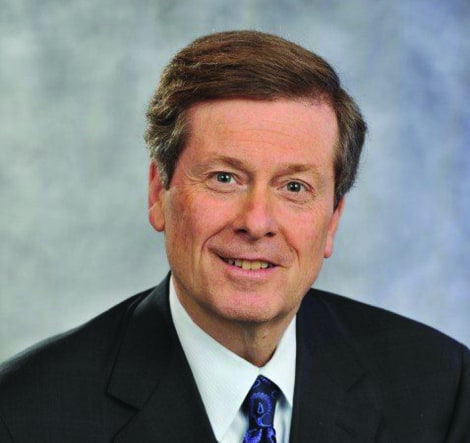At the time of writing, Olivia Chow, John Tory, and incumbent Mayor Rob Ford are pitched in a stiff battle for the City of Toronto’s top job. With months to go before the October 2014 elections, speculations abound as to whether the city’s left and right wing opposition groups have what it takes to dethrone the curiously resilient Ford brothers in the upcoming election.

Mayoral candidate John Tory. MEDIA PHOTO
In order to win, the opposition candidates must find a way to craft a coherent, fiscally aware — but socially responsible — set of goals and visions for Toronto’s future. This winning formula seems unlikely to emerge from the NDP’s Olivia Chow and her predominantly urban and progressive supporters. The conservative John Tory however, stands the greatest chance of appealing to both “Ford Nation” and to its urban counterpart.
Why does Ford still have any support left, after a year’s worth of evidence of crack cocaine, alcohol, and marijuana abuse? The answer lies in the droves of suburban residents who feel disenfranchised and belittled by condescending downtown elites. They largely feel that suburban interests are simply not considered, given the latter’s passion for taxation-heavy social and urban programs. This is why — despite a slew of scandals and incriminating evidence since 2013 — Ford can still count on his core support base; it makes up somewhere between 20 and 33 per cent of the next election’s voters, depending on what sources you consult.
The combination of an untested campaign manager in his brother Doug, the possibility that Operation Traveller’s investigation could result in his arrest at any time, and consistent public relations storms significantly undermines Ford’s odds for re-election. He stands or falls on the likelihood that John Tory and Olivia Chow undermine each other, splitting the opposition vote to his benefit.
Chow resigned her position in the House of Commons to capitalize on a mounting discontent with Ford’s antics among the city’s left leaning constituents. In order to win, she hopes to gather as many of the left and centre votes as possible. Unfortunately, for Chow, this left-inspired opposition to Rob Ford does not alone constitute a winning support base.
You can expect Chow’s campaign to emphasize her economic and business ambitions for the city in order to attract outliers. She has not as of yet indicated support for the downtown relief line. Ms. Chow’s challenge will be to shake off the chronic criticisms facing NDP candidates. In order to win, she will need to portray herself as a reasonable and fiscally responsible alternative to Ford.
Tory, on the other hand, is well positioned to compete against Ford’s bare-knuckled fiscal politics, as he has thus far seemed more amenable to compromises on social and urban renewal programs — qualities that may ingratiate him to liberal voters. Toronto is world-renowned for being a megacity whose politics suffer from a constant struggle between downtown and the suburbs. Tory’s campaign profile and experience as a mediator — he is well versed in the ways of the business-minded downtown — seems most likely to attract both Ford’s and opposition supporters.
Defectors from Rob Ford’s support base will most likely prefer Tory’s profile as a Conservative chairman and corporate leader, over Chow’s as a labour leader with a heavy welfare bend. Tory will also benefit from the experience of his campaign manager — the same one who secured our current mayor’s victory in the first place.
Tory would provide much-needed conciliatory leadership to a fiercely divided city at risk of losing its edge. Toronto is a world-class city, one that deserves to be united behind a leader who can make its worst-off better, while allowing its best competitive offerings to shine. John Tory stands out among candidates as the one most likely to make this so.
Yves Guillaume A. Messy is in his final year, specializing in political science. He is a political commentator on CTV National News.

